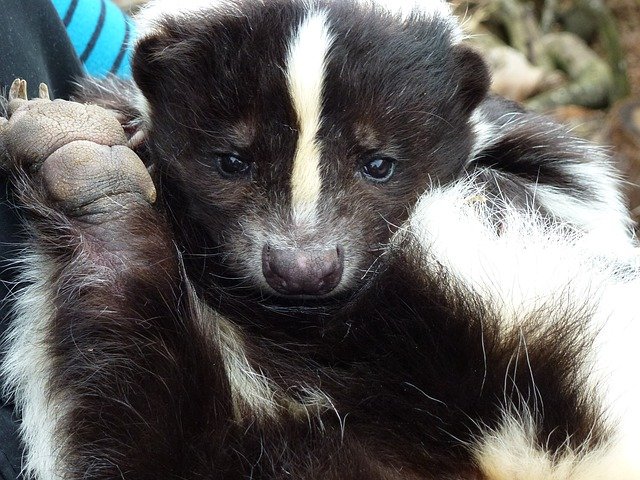
Skunks are not armed with long claws and nasty teeth like raccoons but their defence mechanism is equally potent. They have a pair of dedicated sacs located in their anus. The sacs are merely pouches that store an extremely foul smelling yellow oil secretion produced by glands that line the sacs. When you or your pet is sprayed by a skunk always de-skunk outside. Most of the materials used in the treatments can usually be found already in your home.
1. Dishwashing liquid, peroxide and baking soda. Mix the 1 cup hydrogen peroxide with a 1/4 cup of baking soda and a teaspoon of dishwashing liquid. Apply the solution, thoroughly rub it in all over, rinse and repeat. This one works the best – I’ve used it a lot.
2. Shampoo and tomato juice. Lather your pet in their pet shampoo and apply a lot of tomato juice, wait 20 minutes and repeat.
3. Apple cider vinegar and water. Mix two parts water with one part vinegar, apply to pet and wait 5 minutes. Rinse with water and repeat.
https://insectandrodentexterminators.com/de-skunking-your-pet/
gogreenpestcontrol.ca insectandrodentexterminators.com Delta Ladner Tsawwassen B.C., Randy Bilesky BsF CPA RPF
https://www.linkedin.com/pulse/de-skunking-your-pet-randy-bilesky/?published=t